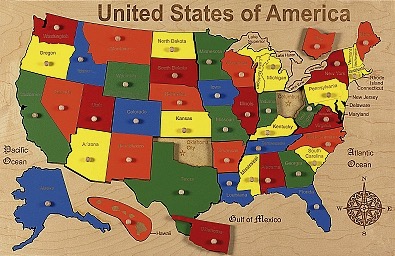Illinois would be wise to remember that “everything is relative,” as Einstein’s theory might be simplistically stated.
That is, the state’s financial crisis won’t be resolved unless it can be restored to competitive levels of taxation and competitive quality of services relative to other states. All sides hopefully agree with that basic proposition.
How is Illinois doing from that perspective? Our political establishment is quite proud of the state’s new budget, claiming that Illinois is on a better fiscal path and boasting about recent credit upgrades.

But has the state really made any progress – relatively speaking? The answer requires a look at other states.
The federal cash deluge has been so huge that many states are planning tax cuts and spending programs only made possible by federal money authorized under the cover of pandemic relief.
States are “swimming in cash.” That’s from a Politico headline from last week, and it pretty much says it all. Last fall, state and local governments were widely said to be desperate for federal pandemic assistance but, today, even left-leaning news sources like Politico report that local governments are flooded with excess cash from the federal government.
At least nine states have already passed legislation to reduce individual or corporate income tax rates, reported CNN.
A few examples:
• Wisconsin’s new two-year budget cuts income taxes by over $2 billion and reduces property taxes by about $100 per year for the average home – “one of the biggest tax cuts in Wisconsin history,” according to its governor.
• Arizona moved toward replacing its progressive income tax with a flat one, reducing brackets to two, and imposing a 4.5% rate cap on a surcharge on higher earners that voters had approved last year to pay for education.
• Ohio cut income tax rates and boosted the bottom bracket so more low-income earners will be exempted, and eliminated the top bracket for those earning more than $221,300.
• California is using a surge of extra cash – more than $100 billion in surplus revenue and federal aid – to give stimulus checks to two-thirds of residents, build housing and provide Medicaid coverage for undocumented residents over age 50.
• Many other states are paying down debt, and still others are increasing their spending for by double-digit percentages, including Vermont at 14.5%, Pennsylvania at 21.3% and North Carolina at 11.6%.
Other states are still debating what goodies they will provide with their cash windfall, including Michigan and Indiana.
So, the real issue is which states ultimately will be proved to have improved their competitive advantages over Illinois.
If those that have cut taxes or improved services are able to stay that course, Illinois will remain uncompetitive, or perhaps slip further. Illinois did use its windfall to reduce its backlog of unpaid bills, which was prudent. And it increased payments to schools, which is popular, though recent history has shown that more funding doesn’t mean better results.
But Illinois ignored a whopping hole in its unemployment insurance fund, which was last measured in May at $5.2 billion and may be as much as $8 billion today. Many other states used much of their federal cash to fill holes in their unemployment fund trusts. And Illinois, of course, did nothing to address its out-of-control pension costs, which are the primary reason the state can’t have the nice things other states have.
In short, except for the effects of federal cash, Illinois’ fiscal position is no different than before the pandemic, but other states may have moved ahead.
One thing that’s certain is no state can expect the federal cash largesse to continue because it’s now widely recognized that it has been excessive. Did states receive too much money in the Biden rescue plan?” asked U.S. News & World Report. “The answer is definitely yes,” it answered. There’s no longer any disagreement on that.
It’s conceivable that other states may turn out to have used their cash windfall less responsibly than Illinois, thereby improving Illinois’ relative competitiveness.
But that’s mighty doubtful. The boasting by our political establishment of its fiscal prowess is ground for cynicism. That boasting has converted what might be considered a small bit of good news into bad news. It has oversold the importance of the state’s credit upgrade and refused to acknowledge that the federal cash windfall is all that has changed.
That takes pressure off on the need to make the reforms Illinois still desperately needs, so expect more of the same – no reforms.
